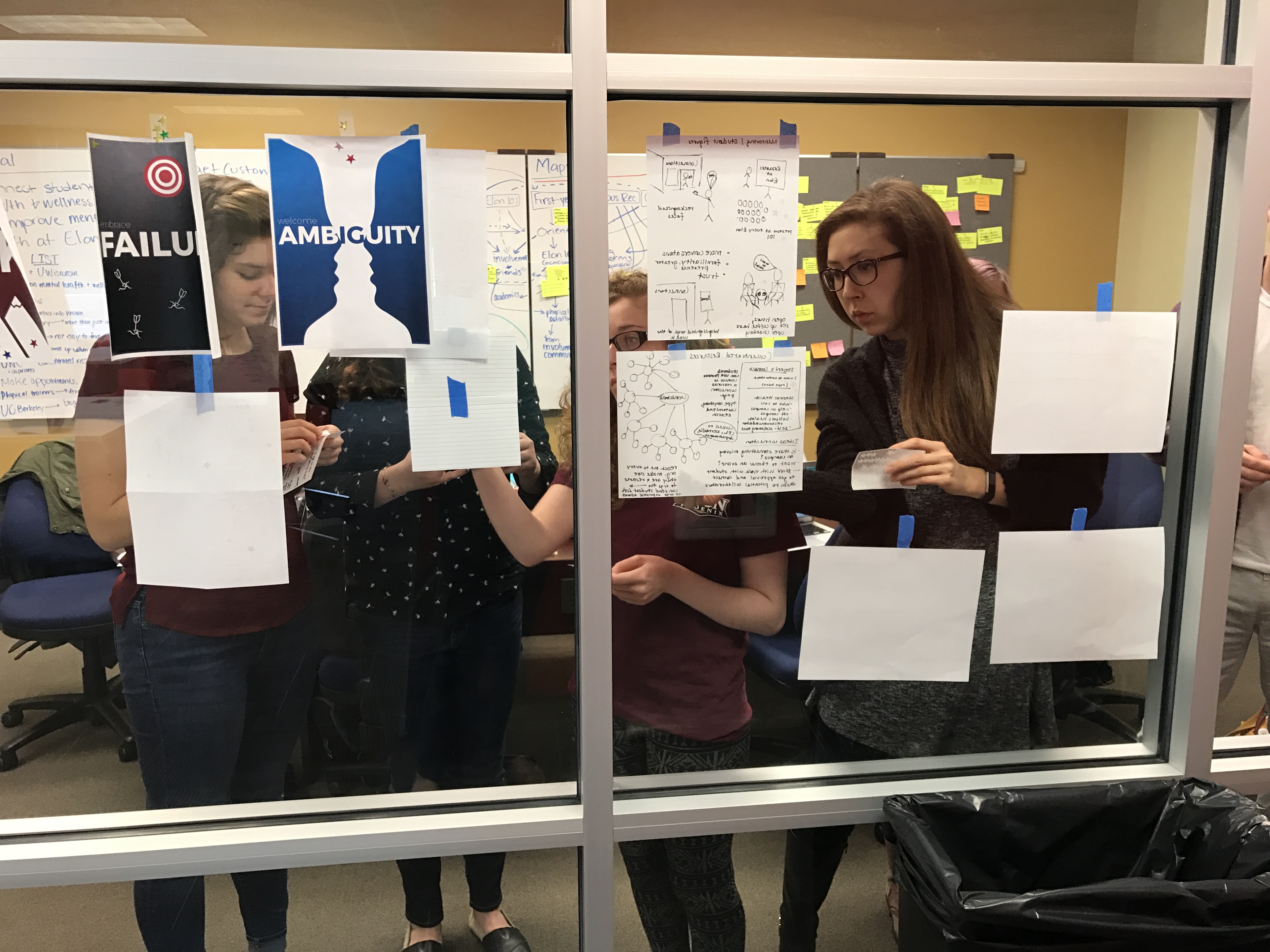The Center's most recent study uncovers that alumni who participated in the Design Thinking Studio in Social Innovation found the design thinking skills they acquired in the program allowed them to excel in their professional lives. With these findings in mind, the Center launches a new Pathways to Design Thinking one-credit Winter Term course.
The Design Thinking Studio in Social Innovation was offered to students during the spring semester in 2017 and 2018 as a set of integrated classes focused on creating social change on complex community challenges by using design thinking.

A recent study of the innovative course by the Center for Design Thinking has found that students who participated hav used the skills they acquired to propel themselves in their professional lives post-graduation. The findings helped support the launch of a new Pathways to Design Thinking course to be offered during Winter Term 2020.
Projects completed by the students in the studio in 2017 and 2018 included a guide helping to promote local businesses in Burlington and offering design thinking workshops to community members outside of Elon.
“I was looking for a challenge — a way to use a lot of the skills I learned in my other classes — and I really liked the community based aspect of it,” said Chloe Donohoe ’17. “That was the point of my time at Elon where I was looking outward and trying to figure out what I wanted to do after Elon.”
According to Leah Vail ’19, the skills and experience she gained from the Design Thinking Studio in Social Innovation helped her during the interview process when she was searching for employment.

“It’s the reason why I got the position at my current company,” she said. “I must have talked about this for at least ten minutes, and I think it’s what led them to plac
e me on the team I was placed on. It seemed like the path they wanted me on was to be a recruiter or to be a generalist solving bigger problems.”
Kendra Sterneck ’17, found the experience useful in her post-grad job hunt too, as it piqued her interest in co-working spaces for startups.
“The first job I took, I took because of the Design Thinking Studio. I don’t think I would have been interested in that job or accepted that job if I hadn’t taken the studio,” she said. “It embodied a lot of what I learned in design thinking. It was the main talking point in my interviews.”
Donohoe also cited the studio as an integral part of finding employment after graduation. Through the studio’s engagement with the Alamance County community, she met with local organizations, before participating in the Elon-Alamance Health Partnership, while searching for groups to assist with projects.

“I think one of the really valuable things was having an understanding of Alamance County through this course and entering my professional position already knowing the organizations and institutions,” she said. “During the course, part of it was getting to know the Alamance community as a community member rather than as a student.”
Sterneck found that the studio allowed her to see the different perspectives and experiences that people bring to a group setting.
“I loved my experience in the studio. I’m glad I did it,” Sterneck said. “This kind of initiative was so different, and I think I really learned how to work with different people in the classes. Before starting my early career, it was good to work with people who had different perspectives than I did. It prepares you for your start at work.”
In order to provide students with these skills, the Center for Design Thinking is offering a one-credit course, Pathways to Design Thinking (IDS 277), in January.
The course is designed to advance students’ abilities to facilitate complex and collaborative projects via design thinking practices. Students will pursue a personal design challenge and support on- and off-campus partners in a challenge of their own.

Students that complete the course will be eligible to receive a verified digital badge that demonstrates DT competencies in the design thinking process.
And, since students will gain critical skills designed to help them lead collaborative teams and facilitate difficult challenges, the course can also serve as a pathway towards becoming one of Elon’s Design Thinking Catalysts (students who support the community’s ability to apply design thinking process, methods and mindsets).



